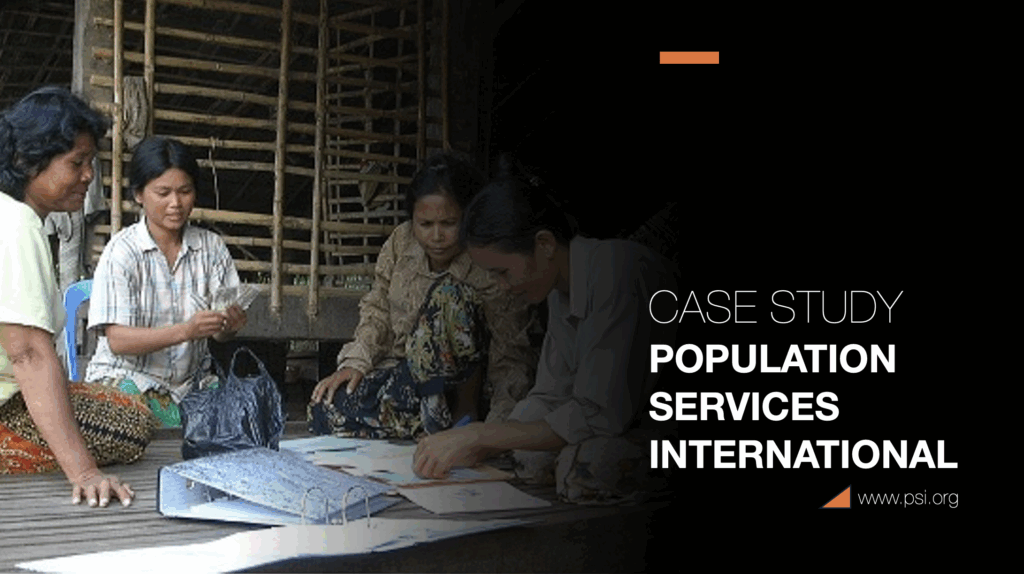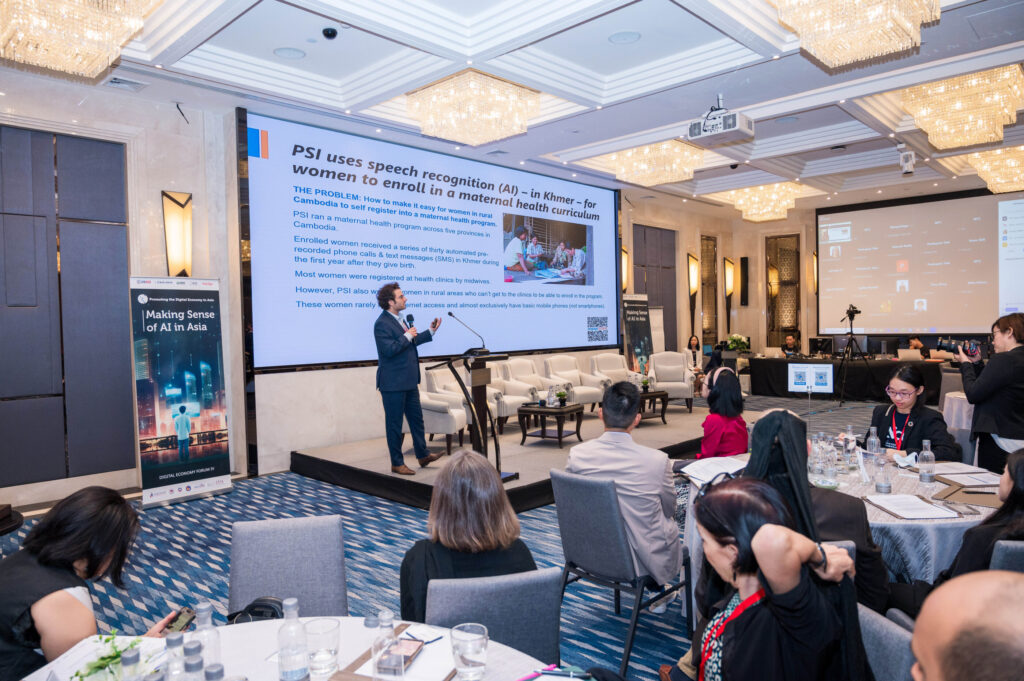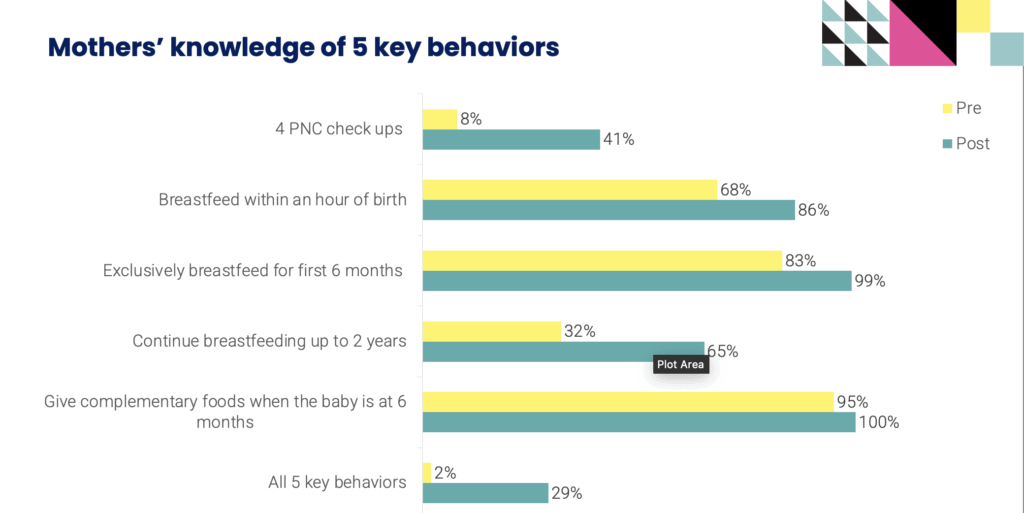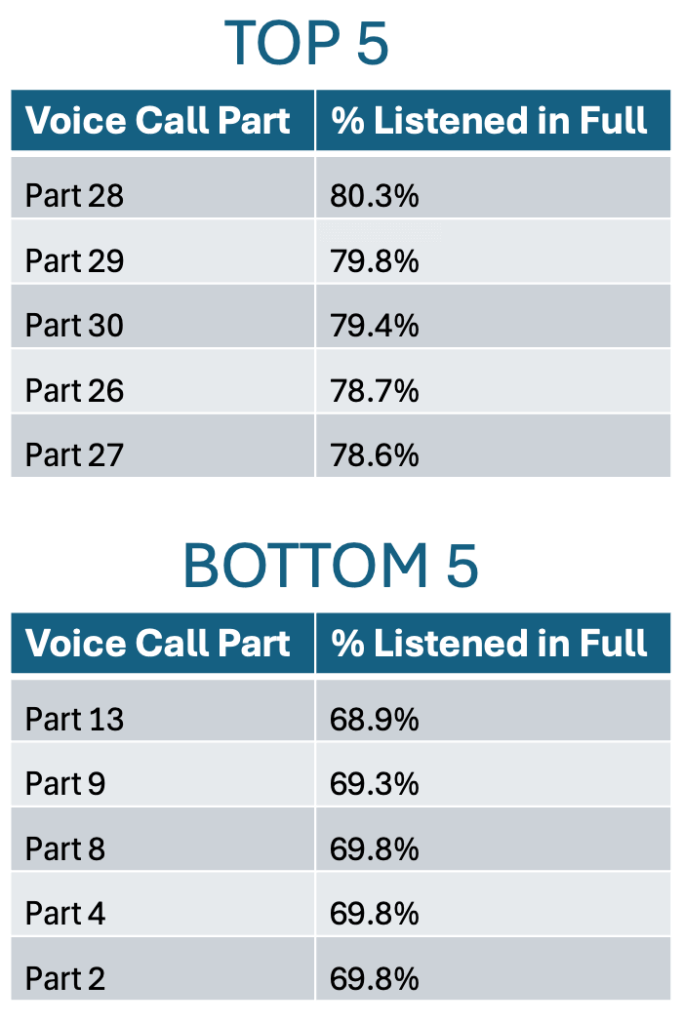Case Study: Revolutionizing Maternal Health in Cambodia through PSI’s “Good Families Raise Smart Kids” Initiative using Automated Call Blasts and SMS Blasts

Executive Summary
- Population Services International (PSI), in collaboration with 17Triggers, launched the Good Families Raise Smart Kids initiative to improve maternal and newborn health outcomes in Cambodia. Using the engageSPARK platform, the program reached over 25,000 mothers with automated, culturally resonant Voice IVR calls and SMS messages tailored to each participant’s stage of pregnancy and early motherhood. The initiative led to increases in knowledge, adoption of key maternal health behaviors, and high retention of critical health information.
- People Reached: Over 25,000 mothers enrolled and actively participated in the program.
- Challenges Addressed:
- Low baseline knowledge of essential maternal health practices.
- Limited access to healthcare information in rural areas.
- Barriers to behavior adoption due to cultural and logistical factors.
- Engagement & Impact:
- 70% of mothers recall messages on exclusive breastfeeding.
- 91% of mothers breastfed shortly after birth.
- 8% to 41% increase in knowledge of the importance of 4 PNC check-ups.
- 100% of mothers introduced complementary foods at 6 months.
Population Services International (PSI) is an international non-profit organization that works to improve health outcomes in developing countries. They help vulnerable populations “lead healthier lives and plan families by marketing affordable health products and services.” Together with 17Triggers, they’ve launched the initiative “Good Families Raise Smart Kids”, which aims to improve maternal and newborn health outcomes in Cambodia by increasing awareness and adoption of five key maternal health behaviors. This was funded by USAID’s Promoting Healthy Behaviors (PHB) Activity.
Background & Goal
Maternal and child health remains a key priority in rural Cambodia, where child malnutrition persists and gaps in early postnatal care, breastfeeding practices, and nutrition education continue to pose challenges. PSI and 17Triggers designed the Good Families Raise Smart Kids program to address these gaps by delivering timely, accurate, and engaging health information to expectant and new mothers, particularly those in remote or underserved communities, using engageSPARK’s automated call blasts.
The initiative aimed to:
- Increase awareness and adoption of the five key maternal and child health behaviors
- Provide consistent support to mothers from late pregnancy through the child’s first year
- Use technology to overcome barriers to access and retention of health information
It was carried out across five provinces in Cambodia.
The program used a blend of traditional methods and modern technology to reach and educate mothers. At its core was the use of the engageSPARK platform, which facilitated a unique and user-friendly way for mothers to enroll and participate in the program.
Implementation and Enrollment Design
Enrollment via IVR Hotline and Midwife Support
Enrollment into the maternal health program occurred through two mechanisms:
- Midwife Registration via Google Form: Midwives filled out a simple online form with the mother’s name, phone number, and either the baby’s due date or birth date.
- Self-Enrollment via IVR Hotline: PSI launched a toll-free IVR hotline via the engageSPARK platform that women could call to enroll by responding to questions in Khmer. This made it possible for women in rural Cambodia who couldn’t get to the clinics to self-register for the program. The engageSPARK platform used speech recognition technology to capture responses in Khmer. When the system could not confidently interpret the spoken input, it automatically triggered a backup question asking the caller to respond via keypress.
Most women were registered at health clinics by midwives.
Enrollment Challenges
While the voice-based self-enrollment expanded access for women unable to visit clinics, it was not without challenges. Many callers struggled to complete all questions using speech alone: of the 994 women who called in, 566 (57%) answered at least one question via speech, and only 26 (3%) completed the entire enrollment by voice.
With backup keypress questions included, 357 (36%) answered all questions. These challenges were significant enough to be the subject of a presentation by our CEO, Avner Mizrahi, at the USAID Asia Conference in Bangkok.

USAID – Making Sense of AI in Asia (June 10, 2024)
With today’s generative AI, we believe voice-based enrollment rates could have been significantly improved—especially for complex inputs like due dates.
Message Timing Based on Due Date or Birth Date
The participant’s due date or baby’s birth date was used to trigger the message schedule. Once enrolled, each mother began receiving a series of 30 automated voice calls and SMS messages over the course of her child’s first year. Messages were automatically aligned with the stage of pregnancy or child development.
At the time, engageSPARK’s Drip Campaign feature was used alongside custom code to calculate each participant’s message schedule. Today, engageSPARK’s Reminder Campaign functionality makes this even easier. It allows implementers to trigger personalized message flows for each participant—automatically timed to their individual due date or birth date—all within a single campaign and without any custom coding.
Engaging Storytelling Through Trusted Voices
These automated calls were not mere messages but were carefully crafted narratives, featuring the voices of local midwives, doctors, and grandmothers, delivering key information through storytelling, a method designed to connect deeply with Cambodian traditions around child-rearing. These messages included practical tips, reassurances, and reminders about scheduled postnatal checkups and childhood vaccinations.
Reinforcement via SMS Follow-up Messages
To reinforce learning, many calls were followed by SMS messages summarizing the key points. All communication was delivered using engageSPARK’s Drip Campaign feature, which allowed PSI and 17Triggers to automate timely, personalized outreach at scale.
The combined automated call blasts and SMS messaging approach proved critical in overcoming barriers such as low literacy and limited internet access, ensuring that health information could reach and empower mothers no matter their circumstances.
Results – Measurable Impact in Key Areas

From PSI’s Pre and Post Assessment Summary (August 2023)
Amplified Knowledge: Pre and Post-Assessment
The program significantly improved mothers’ understanding of key health practices:
- Postnatal Care: Knowledge about the necessity of four PNC check-ups increased from 8% to 41% post-program.
- Breastfeeding: Awareness of the importance of breastfeeding within the first hour rose from 68% to 86%.
- Exclusive Breastfeeding: Understanding of exclusive breastfeeding for the first six months improved from 83% to 99%.
- Complementary Feeding: Knowledge about introducing complementary foods at six months increased from 95% to 100%.
- Sustained Breastfeeding: Awareness of the benefits of continuing breastfeeding for two years went up from 32% to 65%.
- Overall Awareness: The overall knowledge of all five key behaviors improved from 2% to 29%.
Adoption of Key Behaviors
The adoption of key maternal health behaviors among participants was as follows:
- 40% of mothers made at least four PNC visits within ten weeks post-birth.
- 91% of mothers initiated breastfeeding shortly after birth.
- 59% exclusively breastfed for the first six months.
- 100% introduced complementary foods at six months.
- 48% intended to continue breastfeeding until their child was two years old.
Information Retention from Automated Calls
The retention of information from automated calls was also noteworthy:
- 15% of mothers could recall messages about attending four PNC check-ups within the first 10 weeks after birth.
- 38% recalled being advised to breastfeed within the first hour.
- 70% remembered the recommendation to exclusively breastfeed during the first 6 months.
- 76% retained the information about adequately supplementing their diet in months 6-24.
- 20% recalled advice on continuing breastfeeding for 2 years.
- Additionally, 38% remembered other crucial health information disseminated through the calls, highlighting the program’s comprehensive educational impact.
Results – Engagement Metrics


- Total Voice Calls Sent: 435,049 total messages sent.
- Call Pickup Volume: 355,170 calls were answered (85% of calls that rang and 81% of total sent). 332,203 retry calls were attempted.
- Listening Duration: Participants listened for a combined total of 33,992,950 seconds (565,000 minutes, or ~9,417 hours), averaging 96 seconds per call.
- Deep Engagement: Of the 355,170 answered calls, 262,633 (73.9%) were listened to in full, and 289,162 (81.4%) were listened to at least 75% of their duration. The listenership is based on the length of each recorded call that the moms received.
- SMS Delivery: 148,041 SMS messages were sent; 116,725 delivered successfully (79%), 27,474 failed (19%), and 3,842 unknown status (3%), assumed delivered.
In-Depth Analysis: Call Pickup Behavior & Retry Strategy
The engageSPARK platform includes a built-in automated call retry feature that redials participants who do not answer the first time. This increases the chances of call pickup significantly, especially when participants miss calls due to being busy, battery issues, or poor signal.
An in-depth analysis of call pickup times for both the Welcome and Drip calls reveals clear patterns in participant behavior. The Welcome message is the call mothers receive when they are enrolled in the program. Then the Drip calls are the succeeding calls they receive over time after the Welcome call.
The majority of calls were picked up during the early morning hours, with 7:00 AM emerging as the optimal time—accounting for 68% of all Welcome calls picked up and 66% of Drip call pickups. Nearly all participants who ever answered a Drip call—95%—picked up at least one call at 7:00 AM.
However, this doesn’t tell the full story. While 7:00 AM dominated in volume, 33% of participants picked up at least one call at 6:00 PM, 52% at 12:00 PM, and 75% at 9:00 AM. These secondary time slots, while lower in overall volume, captured significant subsets of participants. This underscores a critical insight: retry calls throughout the day enable more women to access messages on days or at times when their availability changes.
Conclusion – A Vision for Healthier Families
By combining tailored messaging, cultural relevance, and accessible technology, the Good Families Raise Smart Kids program empowered thousands of Cambodian mothers to make informed decisions about their health and their children’s development.
This initiative demonstrates the powerful role of mobile technology in driving behavior change and improving public health outcomes—and offers a replicable model for similar efforts across the globe.
The PSI Cambodia team expressed their satisfaction with the engageSPARK platform and the support they’ve received from the team. Sokhan Ngoun, the Senior Program Manager of the project at PSI Cambodia, said: “The engageSPARK platform – including integrations their team set up with Google Forms – enabled the smooth operation of this important program. The support team was always very responsive and helpful whenever we had questions. We look forward to working with engageSPARK again!“
Looking ahead, generative AI could have taken this impact further. Imagine Khmer speech models that parse complex date inputs—turning the 57% who answered at least one question by voice into near‑100% completion without fallback prompts, cutting enrollment friction by half. Or real‑time natural language understanding that dynamically adjusts call content based on each mother’s concerns and sentiment—deepening engagement and surfacing insights in every conversation. As AI continues to evolve, these capabilities promise to make maternal health programs faster to launch, more personalized, and even more effective at saving lives.
How It Works:

